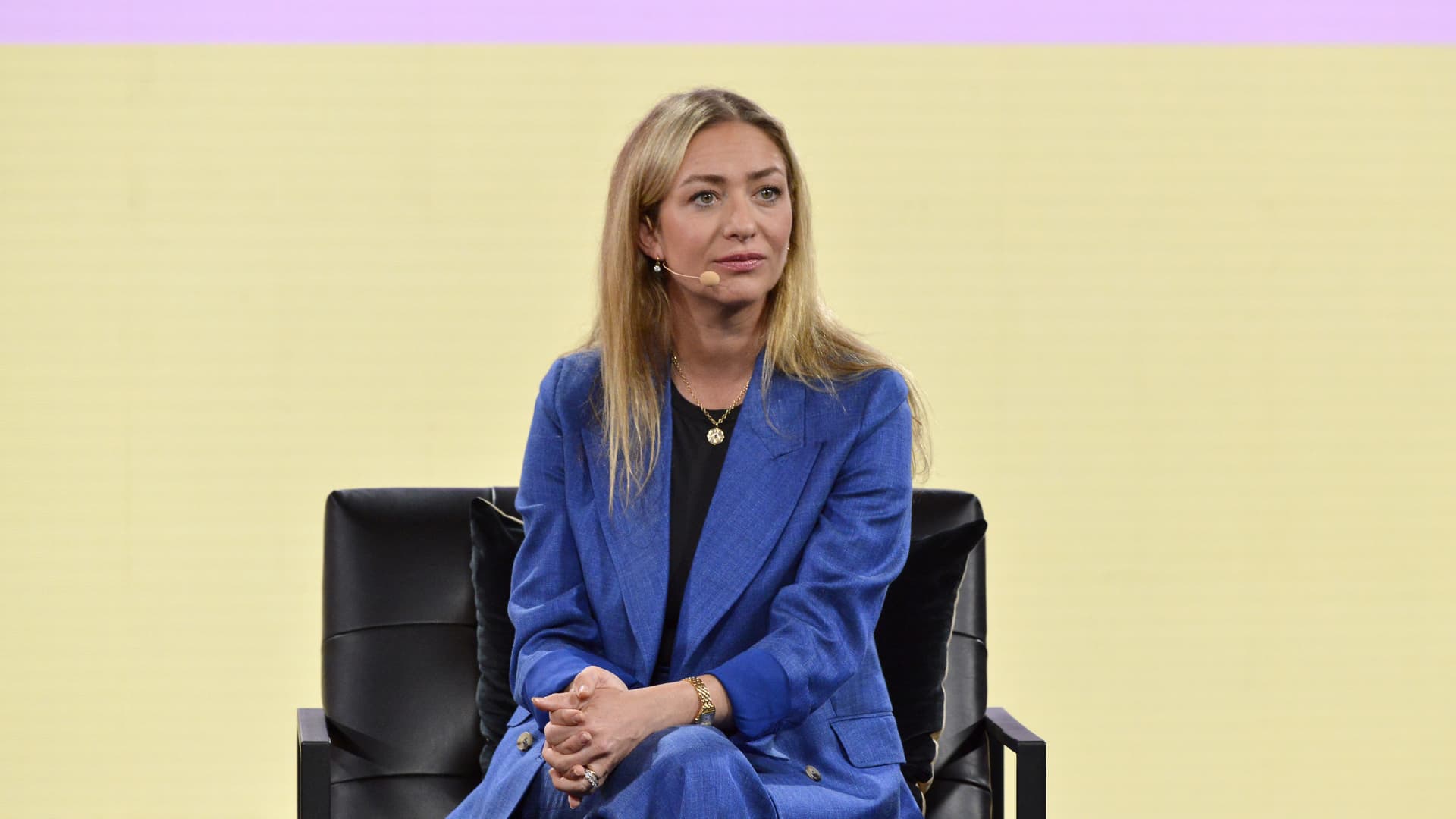In dating app Bumble’s early days, CEO and founder Whitney Wolfe Herd realized something: Twitter and Instagram were two of the most popular apps out there, but she never saw advertisements for them.
She wanted to make her dating app as ubiquitous as the social media giants, and the idea of not spending money appealed to her. Bumble had a “modest budget” at the time, Wolfe Herd said in a MasterClass course released on Thursday.
Instead of traditional marketing campaigns, Wolfe Herd put together a series of “crazy hacks” to drum up interest in her Austin, Texas-based startup, she said. In one of them, she went to a cookie shop and paid the bakers $20 to adorn yellow-frosted cookies with a white Bumble logo. Then, she took the box to a nearby college sorority.
Other gifts to sorority girls — given in exchange for downloading and sharing the app with friends — included balloons, koozies and yellow Hanky Panky undergarments, Fortune reported in 2016.
Wolfe Herd used a similar tactic with college fraternities, dropping off pizza with branded bumblebee stickers slapped onto the cardboard boxes.
“We did not have countless marketing dollars … we actually had to be really scrappy,” she said. “Lo and behold, you have several sorority women download it, several fraternity men download it, and then they started matching. And that’s when the snowball effect really started.”
Bumble launched in December 2014 with $10 million in funding from Badoo co-founder Andrey Andreev, Forbes reported. Most of that money seemingly didn’t go toward marketing — instead, when Wolfe Herd noticed signs outside local college lecture halls banning social media platforms in class, she hung additional signs, adding Bumble to the list.
“No one knew what Bumble was yet, so when we associated ourselves with these products … we inserted ourselves into the assumption that that would be the app that they would want to use in class,” she said. “All of a sudden, those downloads started going up.”
For Wolfe Herd, the momentum was validating. She’d been rejected by previous investors, who thought the app — on which women initiate conversations with their matches — went against social norms and wouldn’t be adopted, she said last year at the Aspen Ideas Festival in Aspen, Colorado.
“I just retrained my brain from Day 1: Every time I got a hurtful email or tweet or some investor telling me [the idea for Bumble] was stupid, I just got really excited about it,” said Wolfe Herd. “People generally don’t know how to see things that don’t exist yet, so you just have to believe in yourself.”
Seven years after launching the app, Wolfe Herd became the youngest female founder in history to take a company public. Bumble Inc., which now owns a group of apps including Bumble and Badoo, has a current market capitalization of $1.91 billion.
DON’T MISS: Want to be smarter and more successful with your money, work & life? Sign up for our new newsletter!
Want to earn more and land your dream job? Join the free CNBC Make It: Your Money virtual event on Oct. 17 at 1 p.m. ET to learn how to level up your interview and negotiating skills, build your ideal career, boost your income and grow your wealth. Register for free today.
